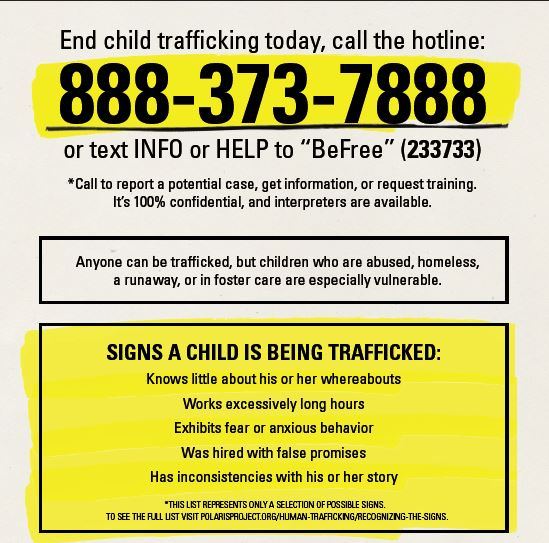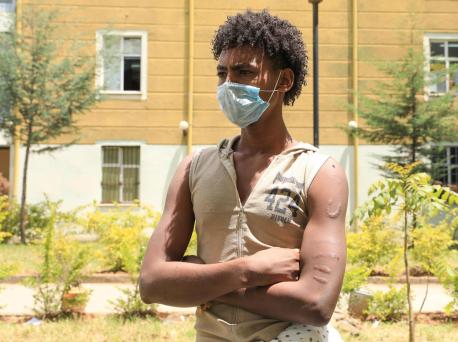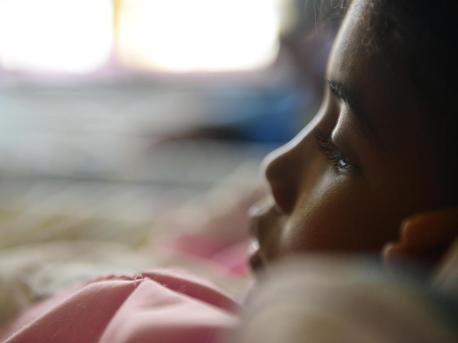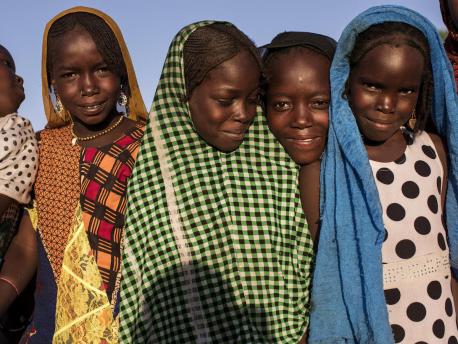
How to Talk to Your Kids About Trafficking
Human trafficking is an issue affecting children all over the world and in the United States. To empower adults to speak with the children in their lives about the issue, we've created tips on how to engage and educate youth on this topic.
As parents, guardians, or educators of children, discussing an issue as vast, unsettling, and frightening as human trafficking may be intimidating. However, it is important for you to understand the vulnerabilities that youth have to trafficking, since it’s an issue that affects communities across our nation and world. You are part of the solution for preventing this abuse and exploitation.
Creating a safe environment for children to explore this issue with a trusted adult can help dispel anxiety and fear and create an opportunity for youth to understand how to keep themselves safe. While you ultimately know what is best for your child, here are ten key messages that can help you educate and empower the youth you care about.
Key Messages for Your Kids:
- Educate yourself on the issue, and learn the signs of a trafficked victim.
- Don’t accept friend requests from people you don’t know on social media. Traffickers commonly use sites like Twitter, Facebook, and Instagram to lure their victims.
- Be aware of how traffickers recruit people, and pay attention to your surroundings.
- Don’t reveal too much about yourself (i.e. your full name, address, school, or living situation) to people you don’t know, whether on your social media sites or in person, no matter how friendly the person may be.
- Never agree to meet someone you don’t know without first consulting a trusted adult (i.e. parent, teacher, guidance counselor).
- If you feel uncomfortable or are hesitant about a situation, confide in an adult who you can help you make the best choices.
- Making a decision to leave a situation or relationship where you feel unsafe or are being harmed or threatened can be hard and scary. If possible, talk to someone you trust, like a friend, family member, counselor, or youth worker.
- If you are in immediate danger or are being physically harmed, call 911 for help.
- If running away from home, try to find a safe place to go or call the runaway switchboard at 1-800-Runaway.
- If you suspect you or a friend are at risk trafficking, call the National Human Trafficking Hotline at 888-3737-888 or text “BeFree” (233733)
If you'd like more information and tips on how to discuss this issue with children, please download our resource on the TeachUNICEF website.
HOW TO HELP
There are many ways to make a difference
War, famine, poverty, natural disasters — threats to the world's children keep coming. But UNICEF won't stop working to keep children healthy and safe.
UNICEF works in over 190 countries and territories — more places than any other children's organization. UNICEF has the world's largest humanitarian warehouse and, when disaster strikes, can get supplies almost anywhere within 72 hours. Constantly innovating, always advocating for a better world for children, UNICEF works to ensure that every child can grow up healthy, educated, protected and respected.
Would you like to help give all children the opportunity to reach their full potential? There are many ways to get involved.






